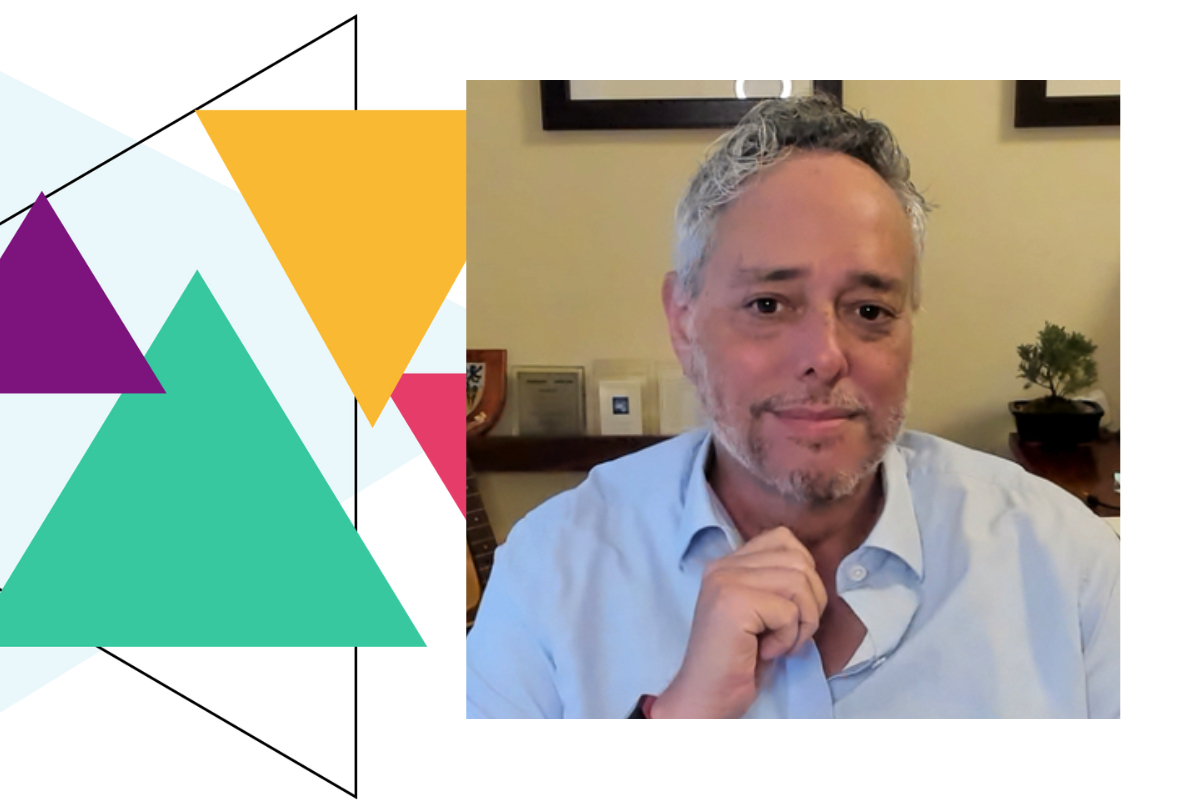Brian Hecht (he/him) always dreamed of becoming a journalist but never let any door stay closed.
After years of working in print and TV news, Brian felt the career path wasn’t an end all be all. With an innate entrepreneurial instinct, he worked on several startups before finding a home at the Entrepreneurs Roundtable Accelerator (ERA) in New York. Eight years later, Brian oversees the accelerator program as a managing director and venture partner, helping to guide 15 companies every six months.
With the new year ushering in new possibilities and connections, Brian spoke with us about his story, his passion for startups and serving diverse founders, and the power of LGBTQ+ entrepreneurship.
Brian, please give us a little background on your work with ERA.
Of course. The Entrepreneurs Roundtable Accelerator – or ERA – is an early-stage accelerator for tech startups. We’re very different from other accelerator programs because we operate as a New York-centric boutique shop. We host two cohorts a year, 15 companies each, totalling 30 companies a year.
Our 16-week intensive hands-on program goes through everything a founder might need help with: figuring out how to raise money, how to build a business plan, how to tell your story, etc. We facilitate all kinds of structured activities and offer a co-working space for founders who often recognize that the journey can be lonely.
We’ve been around for about 12 years and just launched our 24th cohort this month. We have over 300 companies in our portfolio who have raised about $1.7 billion since beginning our program graduations.
What led you down the path of working for and running an accelerator?
I come at this from 20 years of being a startup founder myself. When I was younger, I thought I wanted to be a journalist. I served as the managing editor of the Harvard Crimson, worked in print and TV, and taught school for a year in England. But as I started looking at the career path ahead of me, I knew I wanted to do something else and eventually worked my way into business.
Thinking through the business side of things, I was an early founder of four companies, all in the tech space. Before the internet was around, I got a call from an investor on behalf of a startup in Williamstown, Massachusetts. They were building a website for the first time and needed someone with an editorial background. I worked there for a few years and eventually transitioned into business.
But being at ERA is a combination of everything I’ve done. I get to be a teacher, a storyteller, and use my experience as a founder to help new founders grow their startups.
In the mid-2010s, I reconnected with a co-founder of ERA, and I was recruited to be a mentor. I did that for one or two cohorts and realized how much I love doing it. I became a lead mentor for several years and found that to be even more rewarding because you got to really know a company.
Three years ago, I became a full-time team member, and in the last year, I took over running the accelerator.
How have accelerator programs changed in the past few years?
Ten years ago, there wasn’t really a huge conception of accelerators. There were no right or wrong patterns to do these things, and every accelerator troubleshot effective and ineffective approaches. The ‘startup grind’ was not a thing at the time.
When I was starting my businesses, I had to learn a lot of lessons the hard way. I made so many mistakes along the way that could’ve been prevented if I had been part of an accelerator, so I try to help provide that resource today.
I was sold when I realized the value of our ERA and the support network we offer.
What sets ERA apart from other accelerator programs?
Our program’s biggest benefit is the personalized care and attention we give to every startup, which is partially a function of our small cohort size. We also started focusing on New York rather than Silicon Valley, which wasn’t as common.
In addition, we’re lifelong investors, and I spend a quarter of my time talking to alums. Whether they’re on their last payroll and fighting to stay alive or they’re thriving, we’re here to talk things through – whatever it is and whenever it is.
What brought you to StartOut?
As a venture partner, one of my passion projects was expanding representation for LGBTQ+ people and other underrepresented folks because the startup world is shockingly white and male. Then when you look at who’s actually receiving funding, the representation percentages are even lower.
When we were drumming up LGBTQ+ founders to participate in a pitch event we were hosting, StartOut’s name came up. I’ve had several conversations with Kayla DiPilato, StartOut’s Partnerships Manager, and we’ve discussed all the different ways our organizations can support each other. In two days, Kayla helped connect me with four uniformly high-quality founders that were uniformly high quality, and now I’m trying to figure out how to take that to the next level.
This is just the beginning of our relationship with StartOut. I’m excited to get more involved personally and professionally with the Entrepreneurs Roundtable Accelerator.
***
